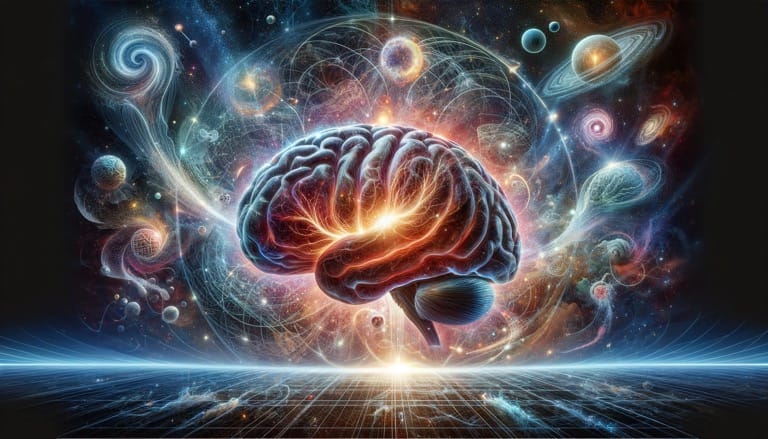The Omnipotent Human Brain: Exploring the Boundless Potential of Our Cerebral Capacity
The human brain, an enigma shrouded in complexity, remains one of the most fascinating and least understood organs in our body. This intricate network of neurons and synapses, weighing merely three pounds, is the powerhouse of human consciousness, the engine of our thoughts, and the epicenter of our emotions and

The human brain, an enigma shrouded in complexity, remains one of the most fascinating and least understood organs in our body. This intricate network of neurons and synapses, weighing merely three pounds, is the powerhouse of human consciousness, the engine of our thoughts, and the epicenter of our emotions and memories. It's a marvel of nature's engineering, a testament to evolution's ingenuity, and a portal to possibilities that are yet to be fully comprehended.
Understanding the Brain's Complexity
The brain's complexity is unparalleled. With approximately 86 billion neurons, each capable of forming thousands of synaptic connections, the brain is a dense network of potential pathways and circuits. This complexity allows for the vast array of human cognitive abilities, including reasoning, problem-solving, creativity, and emotional processing.
Neuroscientists have long been fascinated by the brain's capacity to store and process information. The brain's ability to adapt and rewire itself – known as neuroplasticity – is crucial for learning and memory. This plasticity enables the brain to recover from injuries, adapt to new situations, and continue to evolve throughout an individual's life.
The Brain and Consciousness
One of the most profound mysteries of the human brain is the nature of consciousness – the sense of self-awareness and the ability to experience thoughts and emotions. Despite advances in neuroscience, the exact mechanisms that give rise to consciousness remain a topic of intense debate and research. The brain's intricate network of neurons somehow translates into the subjective experience of being, a phenomenon that has intrigued philosophers and scientists for centuries.
The Role of the Brain in Decision Making
The human brain is not just a passive receiver of information; it actively shapes our perception of the world and influences our decisions. The brain assesses risks, calculates probabilities, and makes decisions based on a complex interplay of logical reasoning, emotional responses, and past experiences. Understanding how the brain makes decisions has implications for fields ranging from economics to artificial intelligence.
The Future of Brain Research
The potential of the human brain is far from being fully tapped. Advances in neurotechnology, such as brain-computer interfaces, offer the promise of enhancing cognitive abilities, treating neurological disorders, and even merging human intelligence with artificial intelligence. The prospect of augmenting the brain's capabilities raises profound ethical and philosophical questions about what it means to be human.
Challenges and Ethical Considerations
As we continue to unravel the mysteries of the brain, we must also consider the ethical implications of such knowledge. The ability to manipulate brain function, whether for therapeutic purposes or cognitive enhancement, poses significant ethical dilemmas. The prospect of brain-computer interfaces and the integration of artificial intelligence with human cognition further blurs the line between human and machine, raising questions about identity, privacy, and the nature of consciousness.
Conclusion: Embracing the Brain's Potential
The human brain, with its boundless potential, continues to captivate and challenge us. As we stand on the cusp of revolutionary discoveries in neuroscience, we are reminded of the brain's central role in defining our humanity. It is not just an organ of thought; it is the cradle of our dreams, the forge of our creativity, and the sanctuary of our deepest emotions. In understanding and harnessing the power of the brain, we unlock the door to new realms of human potential, pushing the boundaries of what it means to think, feel, and be. The omnipotent human brain, in all its complexity and mystery, remains one of the greatest frontiers in our quest for knowledge and understanding.




